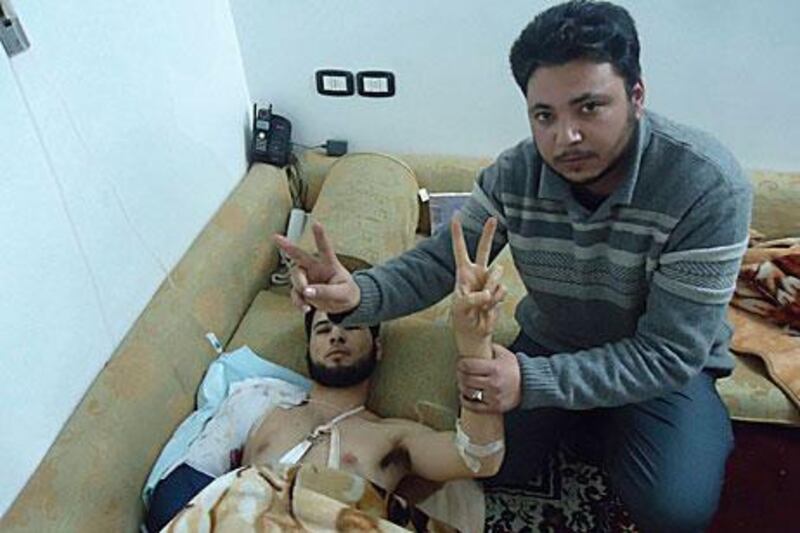Thirty years ago the Syrian president Hafez Al Assad ordered a massacre in Hama, centre of a revolt against his rule. Is his son engaged in a brutal repeat in a hotbed of protest against his regime? Zoi Constantine, Foreign Correspondent reports
BEIRUT // Hama is only 47 kilometres north of Homs, were many residents still remember and shudder at what happened to their neighbours there.
Thirty years ago this month, Hafez Al Assad, Bashar's father and predecessor as president, ordered Syria's military to teach rebellious members of Hama's Muslim Brotherhood a lesson. In a display of brute force that haunts Hama to this day, security forces sealed off the city and killed up to 25,000 people.
Three decades later, some fear today's president is engaged in a similar massacre in Homs.
Even before this most recent onslaught, the city has been a regular target of the regime's violent repression of the revolt against its four-decade rule.
Emboldened by the wave of demonstrations that swept the country beginning last March, anti-regime protesters in Homs soon took to the streets. Many Syrian army defectors have also based themselves there.
In mid-April, came the first major crackdown on demonstrations. Crowds that had gathered at the central Clock Square - renamed Freedom Square by demonstrators - were fired at, with estimates placing the number of dead between 50 and 250.
Three weeks later, as the protests continued to gain pace, tanks were sent into Homs, Syria's third largest city, close to the border with northern Lebanon.
Government forces killed dozens, activists say.
The city was on lockdown, as checkpoints were erected, internet, communications and electricity supplies were cut off, and mass arrests were made, according to activists.
"Homs became the capital of the revolution," said Omar, an opposition activist from the city, whose name has been changed to protect his identity.
"Even though it is targeted every day by shells and bullets, the people are going back to the streets to demonstrate the same day. Nobody stopped in Homs. Without it there would be no revolution."
But sectarian hatred has also erupted in the city of more than a million people. Most residents are Sunni Muslims, but they share Homs with Christians and Alawites - the sect of Shiite Islam to which the Al Assad family belong.
Dozens have died in clashes between the Alawite and Sunni communities. In December a spate of kidnappings and brutal killings - when bodies were found dismembered and decapitated - was blamed on sectarian strife, adding to the death toll from clashes with government security forces.
As heavy artillery rocked the city yesterday, state media reported that "terrorist groups" were using explosives and attacking civilians and security personnel.
But activists say forces loyal to Mr Al Assad were maintaining their assault against the city where his own father had attended military college.
"People in Homs laugh even when they're crying," said Omar. "Even if we're dying, we are dancing. We will be in the streets, doesn't matter how many people die. If we stop now, we will be killed like sheep."





